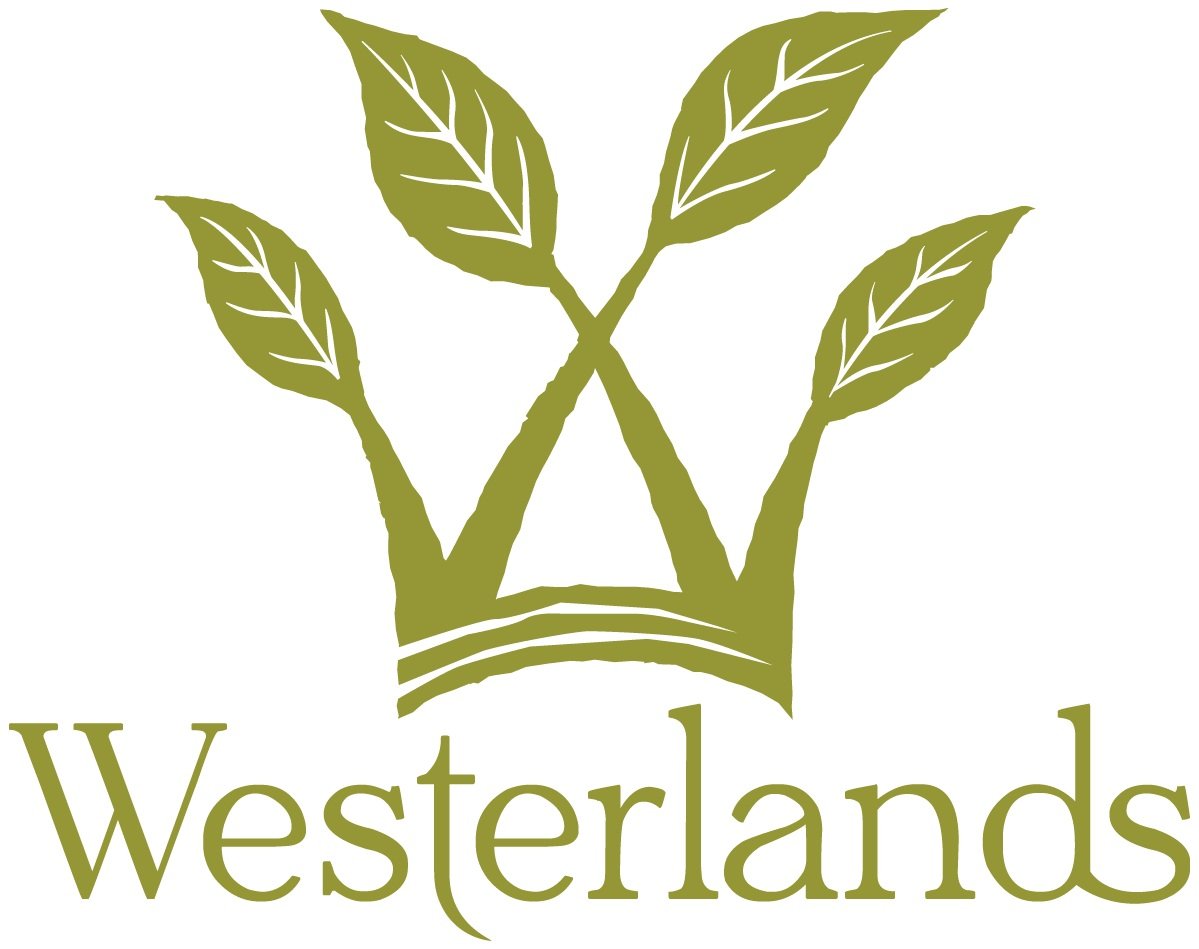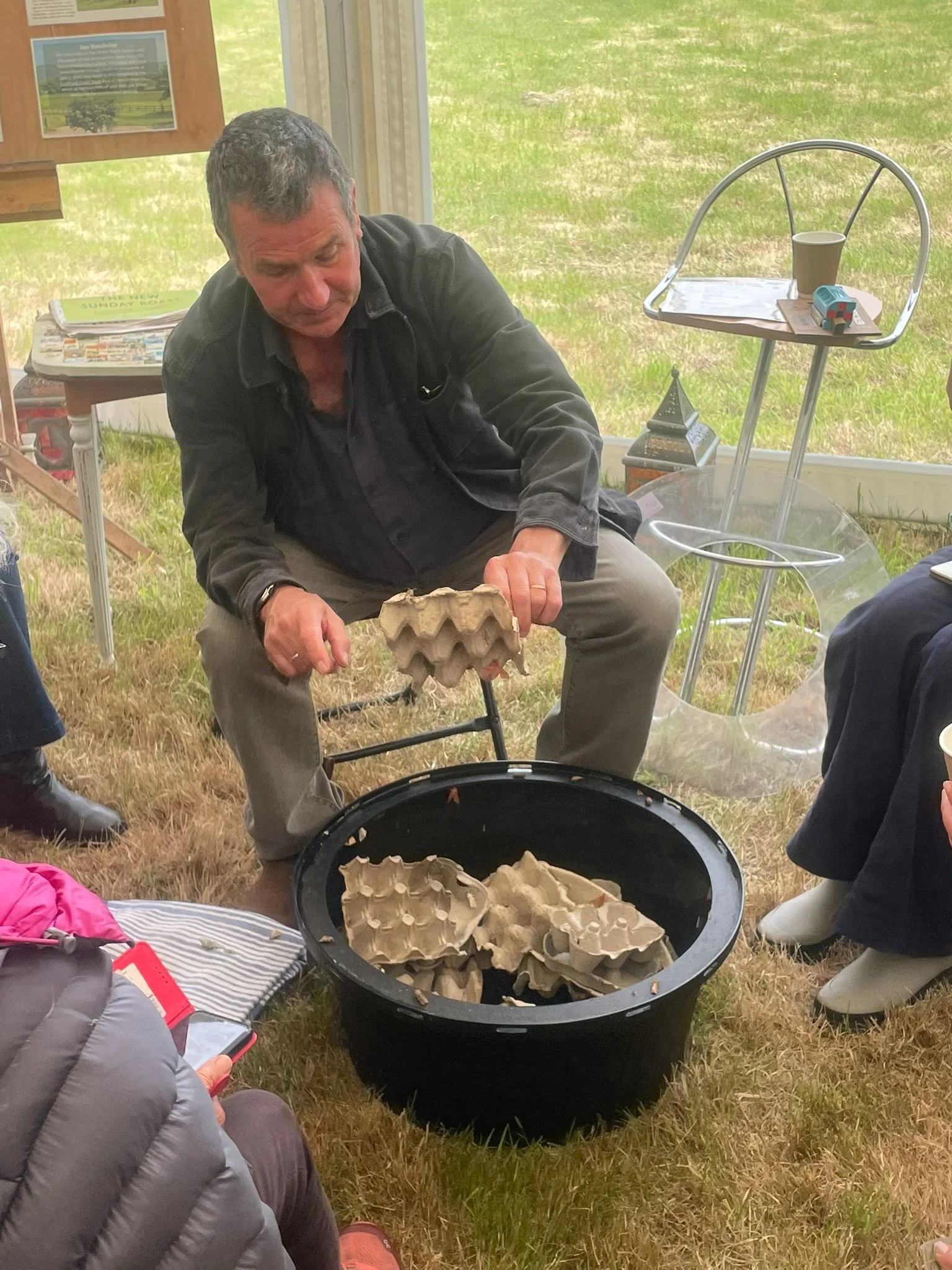South Downs Food & Nature Fest: Blending Biodiversity, Farming and Gastronomy
In June 2025, Westerlands played host to the South Downs Food & Nature Fest — a gathering of nature enthusiasts interested in exploring the deep connection between what we eat and the health of the land around us. Despite the rain forecast, the day began under clear skies, blessing the event’s 80 attendees with a beautiful morning.
The speakers set an inspiring tone for a day deeply rooted in sustainability, food heritage, and biodiversity. Each brought a unique perspective, weaving together themes of environmental stewardship, the cultural significance of local food, and the urgent need to protect natural habitats. Their talks invited attendees to reflect not only on what we eat, but how our choices are impacting the health of our landscapes, communities, and ecosystems. All the sessions created a shared sense of purpose and curiosity that resonated throughout the day.
Richard Prideaux, Charles Dowding, Mark Cocker, Sam Beard, Oliver Hancock, Roger Morgan-Grenville
Mark Cocker is a multi-award-winning author and naturalist who writes and broadcasts on wildlife in a variety of national media. His latest book is a celebration of the interconnectedness of all life entitled One Midsummer’s Day: Swifts and the Story of Life on Earth. His 12 other books include A Claxton Diary: Further Field Notes from a Small Planet (2019) which won the East Anglian Book of the Year Award and Crow Country which was shortlisted for the Samuel Johnson Prize and won the New Angle Prize.
Roger Morgan-Grenville is a writer, speaker and campaigner on conservation, with a particular interest in biodiversity loss and recovery. As a story teller, he believes strongly in the power of persuasion and entertainment in the battle to halt decline and promote regeneration. His latest book is called The Restless Coast.
Charles Dowding the ‘No Dig Guru’ and author who started organic and no dig market gardening in 1982 on 1.5 acres on the family farm in Somerset. His vegetables grew successfully, with far fewer weeds than normal and he was able to gain new insights. Charles now shares globally the benefits of a no dig approach for vegetables, using no fertilisers or other synthetic inputs.
After a light lunch, guests were invited to choose from four immersive activities:
A farm walk led by Oliver Hancock, Westerlands CEO (Chief Earth Officer) gave participants a hands-on look at regenerative and sustainable agriculture in action. As they walked around the farm, Oliver explained how practices like rotational grazing, soil health monitoring, and high welfare slow grown livestock management support both productivity and biodiversity. Guests learned how the Dexter cattle contribute to habitat health, how the farm balances food production with conservation goals, and how thoughtful land stewardship can benefit people, animals, and the wider environment.
Mark Cocker offered fascinating insights into the types and variety of moths found at Westerlands, following a successful overnight moth trapping session. Drawing on his expertise as a naturalist and author, Mark introduced participants to an array of moth species and explained how moths, often overlooked in favour of their daytime cousins, butterflies, are crucial indicators of ecosystem health. Their diversity reflects the richness of local plant life, as many species are tightly linked to specific host plants. Mark also described how moth populations can serve as early warning signs of environmental change, given their sensitivity to pesticides, light pollution, and climate shifts. Attendees were invited to examine the moths up close, learning to identify key characteristics and behaviours. The session sparked lively discussion and a newfound appreciation for these nocturnal pollinators and their role in the broader food web.
A birdwatching tour led by Roger Morgan-Grenville offered a fascinating exploration of the deep connection between birds and the land. As participants meandered through the fields and hedgerows of Westerlands, Roger shared insights into how specific bird species act as indicators of ecological health. For example, the presence of skylarks and yellowhammers suggests well-managed grasslands and hedgerow systems, while declining populations of curlews point to habitat degradation and changes in land use. Roger also discussed the importance of preserving natural nesting sites, the impact of farming practices on avian diversity, and how conservation efforts—such as maintaining field margins and planting native shrubs—can support thriving bird populations. The walk not only enhanced guests' understanding of local wildlife but also deepened their appreciation of the intricate balance between agriculture and biodiversity.
A foraging walk led by wild food and survival expert Richard Prideaux offered participants a rich, hands-on introduction to the edible landscape of the South Downs. With over 20 years of experience as a professional forager, outdoor instructor, and food guide, Richard brought deep knowledge and practical insight to the session. As co-host of The Wild Food People Podcast, he also weaves cultural history, culinary creativity, and ecological awareness into his approach to foraging. During the walk, Richard guided attendees through hedgerows, woodland edges, and meadows, pointing out seasonal edible plants and highlighting their nutritional value, which often surpass their cultivated counterparts in vitamin and mineral content.
The afternoon reconvened at 4pm with a talk from Sam Beard, owner of the Horse Guards Inn in Tillington. With nearly two decades of experience running his acclaimed pub, Sam shared his commitment to ethical sourcing and how he builds trusted relationships with local producers. He spoke in particular about Westerlands Dexter beef, occasionally appearing on his menu, and the care he takes in selecting high-welfare, sustainably produced ingredients. His talk underscored the vital role of transparency, traceability, and community in shaping a more responsible food system.
The event concluded with an engaging panel discussion, drawing together the day’s speakers for a lively and participatory exchange with the audience. The atmosphere was one of inspiration, learning, and collective enthusiasm.
Petworth Bookshop provided books for signing by the authors
To bring the event to a close, Stella and Griff at Woodfire Camping prepared an open wood-fire feast featuring the celebrated Dexter beef and freshly made flatbreads. The combination of food cooked over a fire, the rustic ambiance of eating outside and the exchange of stories and inspiration created a memorable end to the day.
Weaving together food, nature, education and community into a one day festival has been a wonderful first experience for us at Westerlands and we look forward to planning next year’s South Downs Nature Fest! If you would like to register your interest, we will keep you updated.
To be the first to hear about our immersive nature events follow us on our socials:







